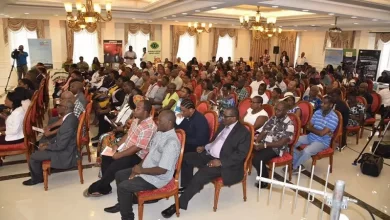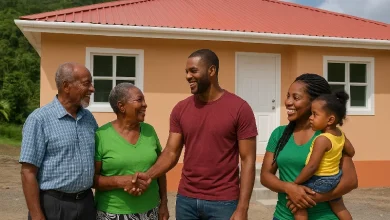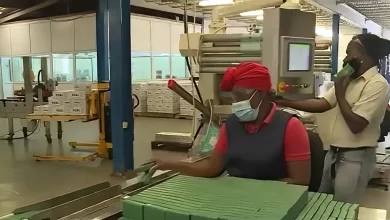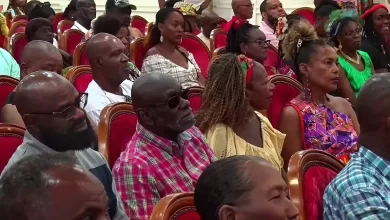Craft, Culture, and Capital: Dominican Women Abroad Are Shaping New Paths

If you want to see the future of Dominica’s development, don’t look at a government white paper or another national strategic plan. Look instead to the worktables in New Jersey, the farmers’ plots in Florida, the craft booths in Brooklyn, and the online storefronts run by Dominican women from diaspora communities. Beyond the barrels and remittance receipts lies an evolving, self-driven model of development, anchored in entrepreneurship, culture, health, and identity.
The upcoming Dominican Diaspora Arts and Crafts 4th Annual Expo, scheduled for June 7th in New Jersey, is already shaping up to be more than just a cultural event. Spearheaded by Marcelline Edwards, a Concord-born entrepreneur and community builder, the Expo promises to be a living case study in how grassroots business, cultural pride, and collaborative vision can form a people-led economic movement.
Women Creating Change from the Ground Up
What started during the isolation of COVID-19 Pandemic has transformed into a reliable annual platform that encourages Dominicans abroad to use their skills, products, and stories to reinvest in each other, and in Dominica itself. But here’s what makes it revolutionary: this is development led by women, powered by culture, and driven by service, not status.
Marcelline, who runs Seven Six Seven Creations, envisioned the expo as a way to reconnect Dominicans who were feeling culturally adrift during lockdown. But rather than simply hosting a nostalgic gathering, she sparked a practical ecosystem where business ideas took root and flourished. Hers included.
At the expo, attendees don’t just walk through aisles of jewelry and paintings. They encounter Dominican-made body products, wellness services, smoke-cured meats made with traditional wood, fruit trees grown in Florida soil, hand-sewn madras couture, and live demos of natural remedies and yoga practices. Many of these vendors are not only women, but women who have lived complex lives, moving between Dominica and diaspora, between caregiving and career, between cultural preservation and economic innovation.
Everyday Innovation, Rooted in Identity
Take Fannilia Caines, for example. Born in Warner but and raised in La Plaine, now resides in the United States. Fanilia founded Nelius Flare, a line of natural deodorants, body oils, and household goods made from safe, plant-based materials. Her story began not with a marketing strategy but with maternal instinct. She needed a safe, effective deodorant for her preteen son and couldn’t find one. So she learned how to make it. That kind of necessity-fueled creativity is not rare in Dominican homes, it’s part of our survival DNA.
And consider Veraline Wayland, originally from Mero and now based in Upstate New York. A former nurse who served at Princess Margaret Hospital and across the St. Joseph District, Veraline now co-manages a smoked meats and hot sauce business with her husband. Since 2009, they’ve developed seven signature hot sauce blends and expanded into traditional Dominican smoked meats, using wood-burning methods that deliver authentic island flavor. Their products reconnect Dominicans abroad with cherished culinary memories, and create demand for Dominican taste in new markets.
Or take Kathe Robinson, a wellness advocate who formerly served as a Quality System Specialist at the Dominica Bureau of Standards and was the first officer at the Discover Dominica Authority to initiate the island’s wellness destination concept. Now based abroad, she works with youth and families on mental health and emotional well-being. Her platform, Olive Tree Synergies, offers coaching, meditation, and youth-focused wellness services, areas still underrepresented in Dominica’s mainstream health system.
Then there’s Shana Joseph, from the village of Colihaut, who walked away from corporate America after earning her master’s in marketing and built Glamorous Acres Farm in Florida. She grows guavas, grafted mangoes, coconuts, and sugarcane, and brings them to the Expo, giving Dominicans in the U.S. a taste of home they haven’t had in decades. But Shanna’s ambition goes further: she’s actively seeking partnerships to ship Dominican produce to the U.S. and send tools, containers, and capital back home. This is not a sentimental project. It’s a supply chain powered by nostalgia but aimed at economic transformation.
Building a Culture-Driven Economic Movement
The brilliance of the Expo is how it organically created space for all these women to showcase their identities and their income potential at once. It isn’t about who has the biggest booth or the most capital. It’s about who shows up with value. And in that way, it turns the traditional development model on its head.
Too often, Dominica’s relationship with its diaspora has been transactional. We frame overseas Dominicans as donors, not developers. We praise them for sending money, barrels, or paying for funerals. But we rarely build policy around the deeper, more sustainable ways they’re investing: in businesses, knowledge-sharing, health programs, cultural branding, and long-term trade.
Dominica still lacks the trade and customs infrastructure to truly support this diaspora-driven model. Entrepreneurs like Shanna face real obstacles trying to bring Dominican products into the U.S. due to HACCP compliance gaps and customs bottlenecks. Meanwhile, Dominican craftswomen abroad must often source raw materials from other islands or countries because local supply chains are too limited or too bureaucratic. That’s not a reflection of our potential, it’s a failure of imagination and policy.
Time for Policy to Catch Up With the Diaspora
If we had a Ministry of Diaspora Relations that truly understood the entrepreneurial culture of Dominicans abroad, it would be present at events like the Expo. It would be cataloguing the products, the creators, the services, the networks, and building bridges between them and Dominica’s economy. The Ministry of Trade should be drafting legislation to help Dominican producers meet international export standards. Our tourism industries should be partnering with these creators to define the Nature Island brand using authentic, home-grown products and people.
Because here’s the thing: the women leading this movement are not waiting for government permission. They are building systems of trust, distribution, wellness, and cultural pride with or without the state. Their work is inherently feminist, collaborative, and generational. They are not just exporting crafts. They are exporting culture, memory, and resilience, packaged for sale, but grounded in purpose.
And they are not doing this in isolation. They support one another, promote each other’s brands, co-host booths, and mentor younger women. That, too, is part of the innovation. It’s not a development model based on who gets what share of a grant. It’s a model based on who can show up, stay consistent, and lift others in the process.
A Movement Worth Supporting
As Dominica continues to search for inclusive models of economic growth, it must begin recognizing and funding what’s already working. Diaspora expos like this one are not side events, they are incubators of modern Dominican enterprise. They offer a sustainable, scalable, and deeply human. The only question is whether Dominica will catch up with the vision its daughters are already living.
This article is copyright © 2025 DOM767








